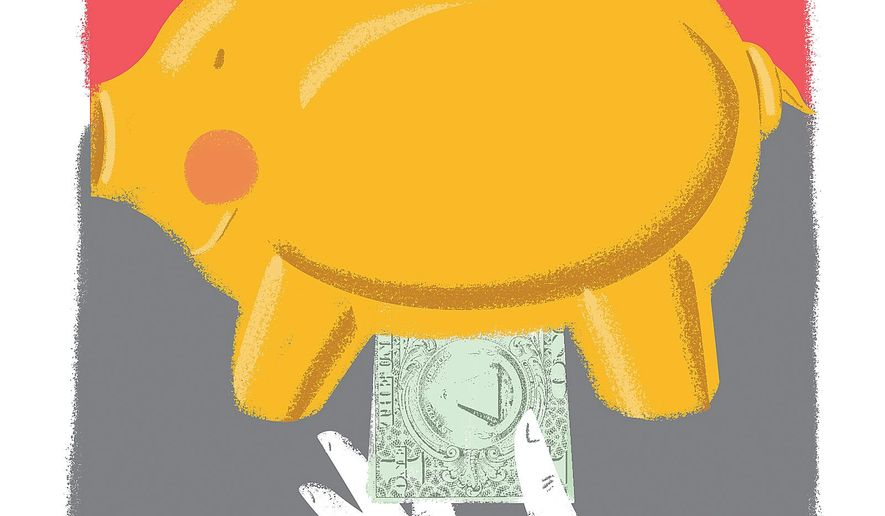OPINION:
Would you vote for a tax that frequently taxes people at an effective rate of 100% or more, misallocates investment, reduces economic growth and job creation, often becomes almost impossible to calculate, and in many cases reduces, rather than increases, revenue for the government?
The tax to which I refer is the capital gains tax – one of the worst inventions of mankind. Capital gains are the alleged “profits” on the sale of non-inventory assets, such as stocks, bonds, commodities, real estate, and even personal property like jewelry and art.
So-called “capital gains” are price changes most often caused by inflation, which, of course, is caused by incompetent or corrupt governments. The value of the U.S. dollar is now about one-twenty-fifth of its value back in 1914 when the Federal Reserve (the U.S. central bank) was formed – mainly to provide for monetary stability. So much for that idea.
If you had bought a small RV park back in 1987 (when the consumer price index was about half of what it is today) for $100,000 and then sold it this year for $200,000, the government would claim you had a capital gain of $100,000 upon which you owe tax. If you live in a high-tax state, the tax on the “gain” could be as much as 33% or $33,000 – even though the purchasing power of the investment has not increased. By taxing nominal rather than real gains and restricting loss deductions, the capital gains tax becomes a non-legislated wealth tax and a government theft of property.
There is much talk about making the tax code fairer. There is nothing fair about the IRS taxing government-caused inflation. Some excellent tax lawyers have argued that there is no basis in law for taxing the inflationary portion of capital gains. It is merely something the IRS decided to do on its own – without a law – decades ago. Given the economic damage that taxing inflation does, as well as its fundamental unfairness, it might be stopped if large numbers of taxpayers just refused to pay the tax on the inflationary portion of the gain as a peaceful protest against government tax abuse.
Some countries explicitly allow for the indexing of a capital gain for inflation. Other countries have no capital gains tax at all because they recognize what a destructive tax it is. And many other countries limit capital gains taxes to certain classes of assets, such as art objects.
The taxpayer often has a great deal of discretion when to realize a capital gain – the date of the sale. Capital gains tax rates have been raised and reduced many times in the U.S. and other countries, so there is considerable empirical evidence of the effect of rate changes on realizations. High tax rates cause what is known as a “lock-in effect,” where people desire to sell an asset, but the capital gains tax rate makes it prohibitive. Such an effect increases misery and misallocates capital.
Many studies have been done about the relationship between capital gains tax rates and capital gains tax revenues. Because of the discretionary nature of most capital gains realizations, they are very sensitive to the rate. The Reagan Treasury, after a detailed study, concluded that the short-term revenue-maximizing capital gains tax rate was between 15 and 20%. Other studies have concluded that the revenue-maximizing rate is less than 28%. Studies have concluded that the very long-run revenue-maximizing rate is probably zero because the capital gains rate falls on capital and thus reduces investment, employment, and growth. Without a capital gains tax, economic growth would be higher, and this higher growth would increase tax revenues from less destructive taxes, such as those on consumption.
The current maximum federal capital gains tax is 23.8%. The just-passed House “Build Back Better” (BBB) bill would push the top rate to 31.8%, which would also be the top rate in states with no state income tax like Florida, Texas, Tennessee, Nevada, Wyoming, South Dakota, and Alaska. On the flip side, citizens of states with high state income tax rates like California, New York, and New Jersey would find themselves paying destructive rates from 43 to 45%.
The IRS has now claimed that any capital gain or loss resulting from the use of a cryptocurrency needs to be reported. As cryptocurrencies increasingly replace government currencies, the bookkeeping job will become impossible. Who could practically keep track of the price of every cryptocurrency they purchase and then calculate the adjusted price if they are using it to buy toothpaste or newspaper? Even now, the capital gains tax record-keeping requirements are near impossible for most people. Who has perfect records of every improvement they have made to their homes over the decades to correctly calculate the basis when they sell?
Taxing capital gains and losses on commodities trading is downright stupid. In real terms, over time, losses and gains tend to balance out (a zero-sum game); and given that people are more likely to report losses than gains, the tax is a net revenue loser.
With all of the knowledge about the terrible effects of the capital gains tax, the basic question is, why would any thinking and compassionate person vote for such a tax? Is that small majority of the House who voted for the higher capital gains tax rates this past week ignorant of economics and tax history, stupid, or just mean-spirited?
• Richard W. Rahn is chairman of the Institute for Global Economic Growth and MCon LLC.




Please read our comment policy before commenting.